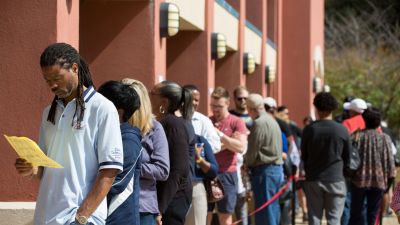
On November 20, 2020, Pfizer and BioNTech submitted a request to the Food and Drug Administration for an Emergency Use Authorization of the COVID-19 vaccine BNT162b2. If approved, the vaccine could be in use by mid-to-late December 2020. According to Pfizer and BioNTech, the vaccine’s efficacy rate is 95% based on a Phase 3 randomized trial of approximately 8,000 participants. This vaccine joins other pharmaceutical companies in the global race to get a safe and efficacious vaccine to market quickly to fight the COVID-19 global pandemic.
But what about people who choose not to get the vaccine? What about people who have religious beliefs that are not in concert with vaccination? Does a vaccine override personal and civil liberties?
A Utilitarian Model of Public Health
Often linked to philosopher John Stuart Mill, in a utilitarian model, the question is one of achieving the greatest good for the greatest number. A vaccine is a true example of a utilitarian philosophy, because vaccines protect us and they protect others from us if we are vectors of a disease. Two main ethical issues stand in the way of near total level of vaccinations: religious and personal beliefs.
Religious Exemptions
The 2016 case of NM v. Hebrew Academy Long Beach involved a challenge to the requirement in New York that all school-aged children need to be vaccinated against certain contagious diseases in order to be able to attend class. The plaintiff in the case (NM) and her family argued that the Hebrew Academy of Long Beach violated New York Public Health Law section 2164, which at the time allowed for a religious exemption so that certain students did not have to get vaccinated. The school’s counterargument was that NM’s religious exemption claim was based less in religious convictions and more in medical concerns.
On September 4, 2015, NM’s application for religious exemption was denied. The court in the case sided with the school, reaching the conclusion that the plaintiff’s overriding concerns were more health-based than religious-based, stating, “[T]he Court does not doubt that NM and her husband hold a genuine and sincere belief that they should not vaccinate the Minors . . .However, careful consideration of the current record suggests that these beliefs were formed with a primary view towards the children’s health, and not their religion.”
While religious exemptions remain in certain localities, they have come under increasing scrutiny. According to Prince v. Massachusetts: “[T]he right to practice religion freely does not include liberty to expose the community or the child to communicable disease or the latter to ill health or death.”
In 2019, New York state outlawed the religious exemption on its books. Bill A2371 entitled “An act to amend the public health law, in relation to exemptions from vaccination due to religious beliefs; to repeal subdivision 9 of section 2164 of the public health law, relating to exemption from vaccination due to religious beliefs; and providing for the repeal of certain provisions upon expiration thereof.” The bill easily passed the legislature and was signed into law by Governor Andrew Cuomo. The reasoning of the legislature? Religious exemptions were making it impossible to reach a vaccination rate of 95% or better, the percentage necessary to secure herd immunity for school children.
Personal Beliefs
In the case of Jacobson v. Massachusetts referenced above, Henning Jacobson, the defendant in the case, laid out his reasons for refusing to get vaccinated against smallpox in the state in the late 1800s.
“The defendant offered to prove that vaccination ‘quite often’ caused serious and permanent injury to the health of the person vaccinated. . .the defendant refused to submit to vaccination for the reason that he had ‘when a child, been caused great and extreme suffering for a long period by a disease produced by vaccination; and that he had witnessed similar result of vaccination, not only in the case of his son, but in the cases of others.”

Jacobson’s argument was that he believed vaccines were dangerous. His refusal also had a civil liberties/privacy element. Jacobson was also arguing for his ability to make decisions about his own body, regardless of the outcome for others. The question for the court was whether Jacobson’s personal beliefs should take precedence over the safety that the vaccine would afford those coming into contact with Jacobson, and Jacobson himself. The court decided that his beliefs should not, stating “[W]e are not prepared to hold that a minority, residing or remaining in any city or town whether smallpox is prevalent, and enjoying the general protection afforded by an organized local government, may thus defy the will of its constituted authorities, acting in good faith for all, under the legislative sanction of the state.” The Supreme Court in that case sided with Massachusetts and the ability of the state to enforce public health laws for all citizens, even if the personal beliefs of some of those citizens were not in concert with those laws.
As we prepare for the future of the COVID-19 fight, the above cases show us that we will need to reconcile the personal and religious beliefs of the few with the health concerns of the many so that we are all safeguarded and protected from SARS-CoV-2, yet leave people’s dignity and ability to maintain their own beliefs intact as much as possible.



